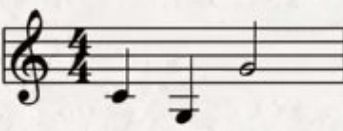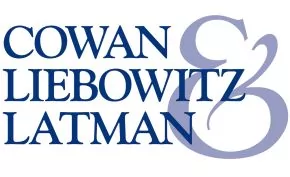- with readers working within the Media & Information industries

There have been few applications to register a sound as a trademark for goods (as distinguished from a mark for services). In a precedential case, Duracell U.S. Operations, Inc. ("Duracell") was successful in registering three musical notes, played at the end of announcements over retail store sound systems, as a trademark for batteries.
Generally, a trademark can be registered in the U.S. based on evidence of its use in commerce when it has been placed in any manner on the goods or their containers or the displays associated with them. Mere advertising for goods is not sufficient, although, as we previously have written, an advertisement can qualify as use of a mark for services when it is directly associated with the services.
Registrations of sounds as trademarks for goods are rare. Some well-known examples are toy action figures emitting the Tarzan yell, (Reg. No. 2210506 owned by Edgar Rice Boroughs, Inc.), and dolls emitting a childish giggle (Reg. No. 2692077 owned by The Pillsbury Company LLC).
The issued presented with Duracell's application was whether a sound mark used in "audio messaging" played in stores where DURACELL batteries are sold should be considered a point-of-sale display for the batteries as distinguished from mere advertising for them?
When Duracell applied to register its sound mark (referred to as the "slamtone") for batteries, claiming use since 1974, the Examining Attorney refused registration on the ground that the specimens of use were mere advertising commercials. She suggested that acceptable specimens might be displays playing the sound associated with the actual goods at their point of sale.
Duracell contended that the audio messaging was analogous to a shelf-talker. The message was played overhead repeatedly and could be heard in the section of the store where the goods were located. It had aired more than 100 million times with well over one billion customer impressions in stores selling more than a million DURACELL batteries.
Duracell appealed the Examining Attorney's decision to the Trademark Trial and Appeal Board (TTAB) which reversed the refusal of registration. The TTAB said that this case was analogous to two decisions by the U.S. Court of Customs and Patent Appeals, the predecessor to the current Court of Appeals for the Federal Circuit to which TTAB decisions may be appealed, that had approved registrations of trademarks for goods: Roux Labs., Inc. v. Clairol Inc., 427 F.2d 823 (C.C.P.A. 1970) (HAIR COLOR SO NATURAL ONLY HER HAIRDRESSER KNOWS FOR SURE for hair coloring preparations used on relatively large counter or window display cards) and In re Marriott Corp., 459 F,2d 25 (C.C.P.A. 1972) (TEEN TWIST for a ham, cheese and tomato sandwich used on menus displaying the ingredients and pictures).
The TTAB said that the use of the sound mark in Duracell's audio messaging was consistent with the standard that "displays associated with the goods" must be:
essentially point-of-sale material such as banners, shelf-talkers, window displays, menus, or similar devices which are designed to catch the attention of purchasers and prospective purchasers as an inducement to consummate a sale and which prominently display the mark in question and associate it or relate it to the goods in such a way that an association of the two is inevitable even though the goods may not be placed in close proximity to the display or, in fact, even though the goods may not physically exist at the time a purchaser views the display. In re Bright of Am., Inc., 205 USPQ 63, 71 (T.T.A.B. 1979) (emphasis added).
The TTAB held that Duracell's audio messaging was a form of advertising, but at the same time constituted a use on a display associated with the goods in that it explained the benefits of the goods and was designed to induce in-store shoppers to consummate a sale. Accordingly, the TTAB reversed the refusal of registration.
In re Duracell U.S. Operations, Inc., Application No. 90559208 (T.T.A.B. July 24, 2023)
The content of this article is intended to provide a general guide to the subject matter. Specialist advice should be sought about your specific circumstances.


